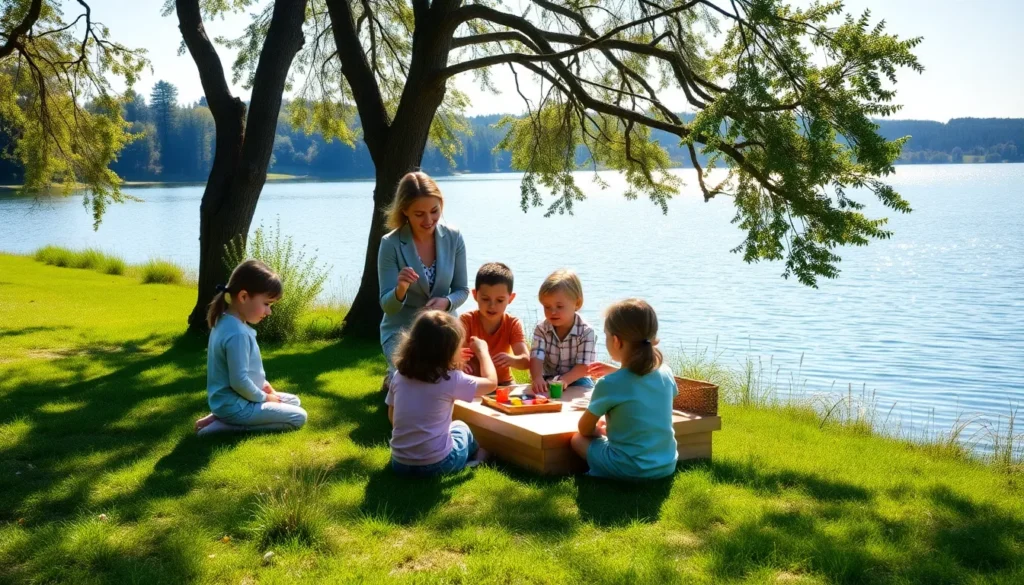Table of Contents
ToggleImagine a school where the classroom extends beyond four walls, where the gentle lapping of lake water serves as a backdrop to curious minds at work. This is Montessori On The Lake, a unique educational experience that offers much more than just academics. Nestled in nature’s embrace, this environment fosters learning through exploration and independence. In this text, we’ll jump into the rich principles of Montessori education, the importance of child-led learning, and the profound impact this setting has on social and emotional development. So, get ready to embark on an educational journey that feels more like an adventure.
Overview of Montessori Education

Montessori education stands out as a beacon of progressive learning. At its core, it emphasizes independence, respect, and a child’s natural desire to learn. Rather than bustling classrooms full of rows of desks, Montessori settings encourage children to explore at their own pace. Here are some core principles that guide this transformative approach:
Core Principles of Montessori Method
- Child-Centered Learning: The Montessori method places the child at the heart of the educational experience. Educators help rather than direct, nurturing a love for learning.
- Hands-On Activities: Children engage in interactive learning, think of constructing models and exploring nature, rather than merely memorizing facts.
The Role of the Environment
The environment plays a crucial role in Montessori education. Classrooms are thoughtfully designed to be aesthetically pleasing, organized, and accessible. They include materials that spark interest and promote exploration. In the case of Montessori On The Lake, the surrounding natural beauty further enhances this thoughtfully curated space, creating an inviting atmosphere for children to learn.
Importance of Child-Led Learning
Child-led learning in Montessori schools is not just a buzzword: it’s a philosophy that empowers children and instills confidence.
Benefits of Montessori On The Lake
Here are some key benefits of this child-centric approach:
- Autonomy: Children choose their activities, which fosters independence and decision-making skills.
- Engagement: With personalized learning, students remain engaged longer, deepening their knowledge and understanding.
Connection to Nature and the Outdoors
Nestled alongside a lake, Montessori On The Lake offers an exceptional connection to nature. Learning outdoors isn’t merely an extracurricular activity here: it’s integral to the curriculum. Children can explore the outdoors, learn about ecosystems, and engage with their surroundings in a way that instills respect for the environment. This approach enhances learning through real-world experiences, nurturing a deep sense of wonder and responsibility.
Social and Emotional Development
Education isn’t solely about intellectual growth: social and emotional development is equally vital. Montessori On The Lake excels in creating a nurturing community.
Community Engagement Opportunities
This school fosters connections not just among students, but with the wider community. Through local field trips, service projects, and seasonal festivals, children learn the value of cooperation and empathy. Engaging with the community allows students to apply their learning in meaningful ways, enhancing both their social skills and emotional intelligence.
Parental Involvement and Support
Parents play an essential role in the Montessori experience. Their involvement helps create a robust educational community.
Testimonials from Parents and Educators
Parents and educators alike sing praises about Montessori On The Lake.
One parent remarked, “My child has blossomed in this environment. Not only is he learning academically, but he’s developing socially and emotionally in ways I never imagined.” Another added, “The connection to nature allows my child to engage in learning that feels seamless and natural.” Educators also express their admiration for how the environment fosters independent thinkers. They note how each child’s unique learning style is embraced, leading not just to academic growth, but to confident, capable individuals.





